
In an era marked by atrocities perpetrated on a grand scale, the tragedy of the so-called comfort women—mostly Korean women forced into prostitution by the Japanese army—endures as one of the darkest events of World War II. These women have usually been labeled victims of a war crime, a simplistic view that makes it easy to pin blame on the policies of imperial Japan and therefore easier to consign the episode to a war-torn past. In this revelatory study, C. Sarah Soh provocatively disputes this master narrative.
Soh reveals that the forces of Japanese colonialism and Korean patriarchy together shaped the fate of Korean comfort women—a double bind made strikingly apparent in the cases of women cast into sexual slavery after fleeing abuse at home. Other victims were press-ganged into prostitution, sometimes with the help of Korean procurers. Drawing on historical research and interviews with survivors, Soh tells the stories of these women from girlhood through their subjugation and beyond to their efforts to overcome the traumas of their past. Finally, Soh examines the array of factors— from South Korean nationalist politics to the aims of the international women’s human rights movement—that have contributed to the incomplete view of the tragedy that still dominates today.
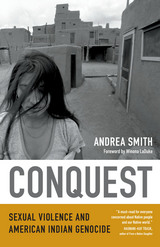
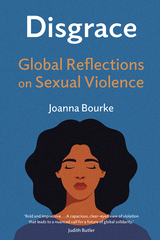
Disgrace is the first truly global history of sexual violence. The book explores how sexual violence varies widely across time and place, from nineteenth-century peasant women in Ireland who were abducted as a way of forcing marriage, to date-raped high-school students in twentieth-century America, and from girls and women violated by Russian soldiers in 1945 to Dalit women raped by men of higher castes today. It delves into the factors that facilitate violence—including institutions, ideologies, and practices—but also gives voice to survivors and activists, drawing inspiration from their struggles. Ultimately, Joanna Bourke intends to forge a transnational feminism that will promote a more harmonious, equal, and rape- and violence-free world.
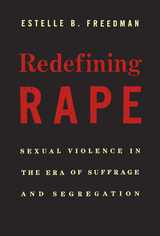
Rape has never had a universally accepted definition, and the uproar over "legitimate rape" during the 2012 U.S. elections confirms that it remains a word in flux. Redefining Rape tells the story of the forces that have shaped the meaning of sexual violence in the United States, through the experiences of accusers, assailants, and advocates for change. In this ambitious new history, Estelle Freedman demonstrates that our definition of rape has depended heavily on dynamics of political power and social privilege.
The long-dominant view of rape in America envisioned a brutal attack on a chaste white woman by a male stranger, usually an African American. From the early nineteenth century, advocates for women's rights and racial justice challenged this narrow definition and the sexual and political power of white men that it sustained. Between the 1870s and the 1930s, at the height of racial segregation and lynching, and amid the campaign for woman suffrage, women's rights supporters and African American activists tried to expand understandings of rape in order to gain legal protection from coercive sexual relations, assaults by white men on black women, street harassment, and the sexual abuse of children. By redefining rape, they sought to redraw the very boundaries of citizenship.
Freedman narrates the victories, defeats, and limitations of these and other reform efforts. The modern civil rights and feminist movements, she points out, continue to grapple with both the insights and the dilemmas of these first campaigns to redefine rape in American law and culture.
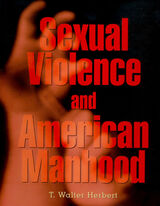
Taking up topics as diverse and timely as the work of FBI profilers, the pornography debates, feminist analyses of male supremacy as sexual abuse, the ritual meanings of fraternity gang rape, and the interplay of racial and sexual injustice, T. Walter Herbert illuminates the chronic masculine anxieties that seek compensation in fantasies of sexual coercion and in sexual offenses against women. His work offers an unusually clear view of this prevailing convention of insecure and destructive masculinity, which Herbert connects with contemporary analyses of male identity formation, sexuality, and violence and with cultural, political, and ideological developments reaching back to the nation's democratic beginnings.
Reading iconic nineteenth-century texts by Whitman, Hawthorne, and Stowe, and pursuing the articulation of their gender logic in Richard Wright's Native Son, Herbert traces a gender ideology of dominance and submission, its persistence in masculine subcultures like the military and big-time football, and its debilitating effects on imaginations and lives in our own day. In materials as diverse as Hannah Foster's post-Revolutionary War novel The Coquette and the Coen brothers' 1996 movie Fargo, this book taps into popular culture and high art alike to outline the logic of American manhood's violent streak--and its dire consequences for a culture with truly democratic and egalitarian ambitions.
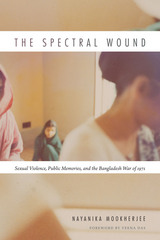
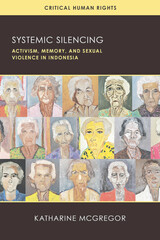
Here, Katharine E. McGregor not only untangles the history of the system during the war, but also unpacks the context surrounding the slow and faltering efforts to address it. With careful attention to the historical, social, and political conditions surrounding sexual violence in Indonesia, supported by exhaustive research and archival diligence, she uncovers a critical piece of Indonesian history and the ongoing efforts to bring it to the public eye. Critically, she establishes that the transnational part of activism surrounding victims of the system is both necessary and fraught, a complexity of geopolitics and international relationships on one hand and a question of personal networks, linguistic differences, and cultural challenges on the other.
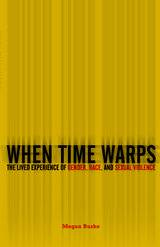
An inquiry into the phenomenology of “woman” based in the relationship between lived time and sexual violence
Feminist phenomenologists have long understood a woman’s life as inhibited, confined, and constrained by sexual violence. In this important inquiry, author Megan Burke both builds and expands on this legacy by examining the production of normative womanhood through racist tropes and colonial domination. Ultimately, Burke charts a new feminist phenomenology based in the relationship between lived time and sexual violence.
By focusing on time instead of space, When Time Warps places sexualized racism at the center of the way “woman” is lived. Burke transports questions of time and gender outside the realm of the historical, making provocative new insights into how gendered individuals live time, and how their temporal existence is changed through particular experiences.
Providing a potent reexamination of the theory of Simone de Beauvoir—while also bringing to the fore important women of color theorists and engaging in the temporal aspects of #MeToo—When Time Warps makes a necessary, lasting contribution to our understanding of gender, race, and sexual violence.
READERS
Browse our collection.
PUBLISHERS
See BiblioVault's publisher services.
STUDENT SERVICES
Files for college accessibility offices.
UChicago Accessibility Resources
home | accessibility | search | about | contact us
BiblioVault ® 2001 - 2024
The University of Chicago Press









